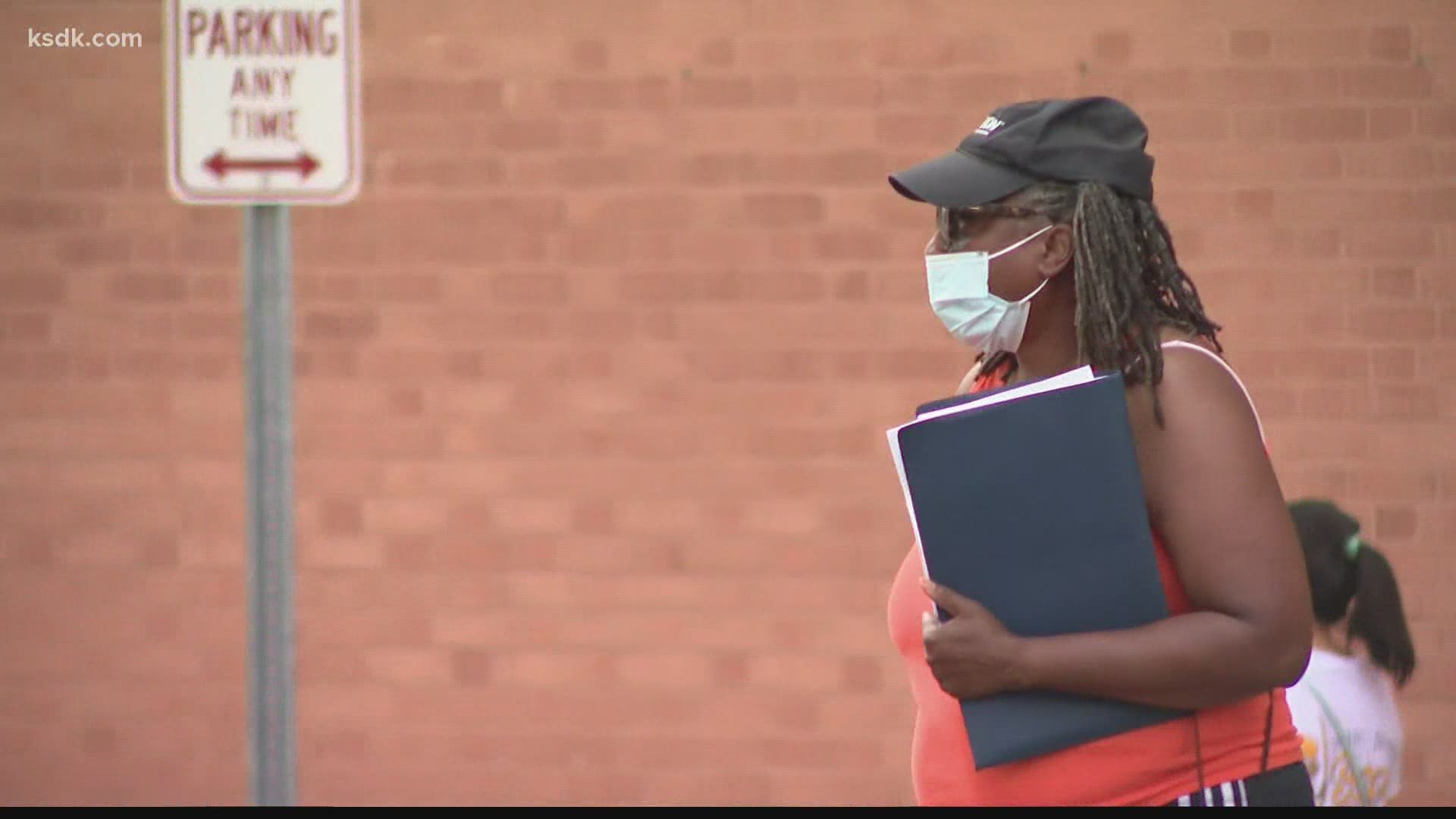ST. LOUIS — It's something Sam Amsden and her husband missed most last summer: the sound of live music.
“We were so, so excited for the El Monstero concert Saturday night,” she said.
But COVID-19 had other plans.
“When I woke up Friday morning with no sense of smell and taste. I immediately knew,” she said. “And I was so disappointed.”
Especially because Amsden and her family are fully vaccinated—and have been for months.
“I can't breathe. I can't go outside. I can't go to the grocery store, I can do nothing but sit here and feel like garbage,” she said via Zoom.
Amsden has diabetes, which means she's considered "high risk." So are others with certain medical conditions, transplant recipients, and older adults.
“Masking does help to protect those folks as well,” said Washington University and Barnes-Jewish Hospital infectious disease specialist Dr. Hilary Babcock, who supports the new mask mandate in St. Louis City and County.
But that’s not because vaccines don't work.
“So your vaccine provides excellent protection for you, keeping you from getting very sick, keeping you from ending up in the hospital, keeping you from dying if you get COVID," Dr. Babcock said. "But if you get exposed to COVID over and over and over and over, even if you have been vaccinated, there is a small risk that you could acquire COVID and then you could pass that to somebody else. Given our vaccination rates, [they] might not be vaccinated and they are at risk for ending up in the hospital and ending up in the ICU and potentially dying. And some people, even if they're vaccinated, if they're immunocompromised, maybe didn't have a great response and those people would still be at risk.”
She said the problem, on a community level: not enough people are vaccinated yet, mandating masks, again--to protect them and the most vulnerable.
“Masking for everyone right now is the best way to be sure that our whole community is safe,” she said. “If we had a much more vaccinated population, we wouldn't have the same level of caseload. We wouldn't have the same spread of the virus, and then we wouldn't all need to go back to masking in the same way.”
Babcock also said while most of the people who become hospitalized with COVID-19 are unvaccinated, a small percentage might be vaccinated but otherwise high risk for severe complications from the virus.
“I don't think anybody thinks about anybody but themselves,” said Amsden, who also said she feels as scared as she did before she got vaccinated, and is frustrated by the debate and online outrage over the new mask mandate in St. Louis City and County.
“I have not lost confidence in the vaccine at all,” she said. “Until everyone gets vaccinated, it's not going to be eradicated. It just makes common sense.”

